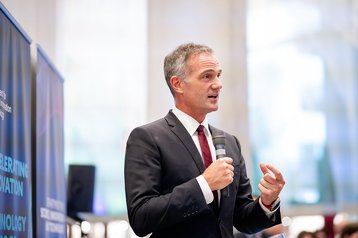UK government designates data centers as Critical National Infrastructure
Means operators can call on more support in emergencies
September 12, 2024 By
Matthew Gooding Have your say
FacebookTwitterLinkedInRedditEmailShare
Data centers in the UK have been designated critical national infrastructure (CNI), a move the government says will give operators access to more support in the event of an emergency.
UK technology secretary Peter Kyle– DSIT press office/Flickr
It is the first new CNI designation since 2015, when the space and defense sectors were added, and means data centers now have the same status as utility companies and emergency services systems.
What CNI designation means for UK data centers
Ministers said that putting data centers on an equal footing as water, energy, and emergency services systems will mean the sector can now expect greater government support when recovering from and anticipating critical incidents.
Technology Secretary Peter Kyle said: “Data centers are the engines of modern life, they power the digital economy and keep our most personal information safe.
“Bringing data centers into the Critical National Infrastructure regime will allow better coordination and cooperation with the government against cyber criminals and unexpected events.”
The new designation will see a dedicated CNI data infrastructure team set up, comprised of senior government officials who will monitor and anticipate potential threats, provide prioritized access to security agencies including the National Cyber Security Centre, and coordinate access to emergency services should an incident occur.
Bruce Owen, UK managing director of colo provider Equinix, said: "We welcome today’s announcement by the government which recognizes the critical nature of data centers and digital infrastructure to the economy and society.
"The Internet, and the digital infrastructure that underpins it, has rapidly grown to be as fundamental to each one of our daily lives as water, gas, and electricity, and is now a service that people and the UK economy can no longer live without.”



